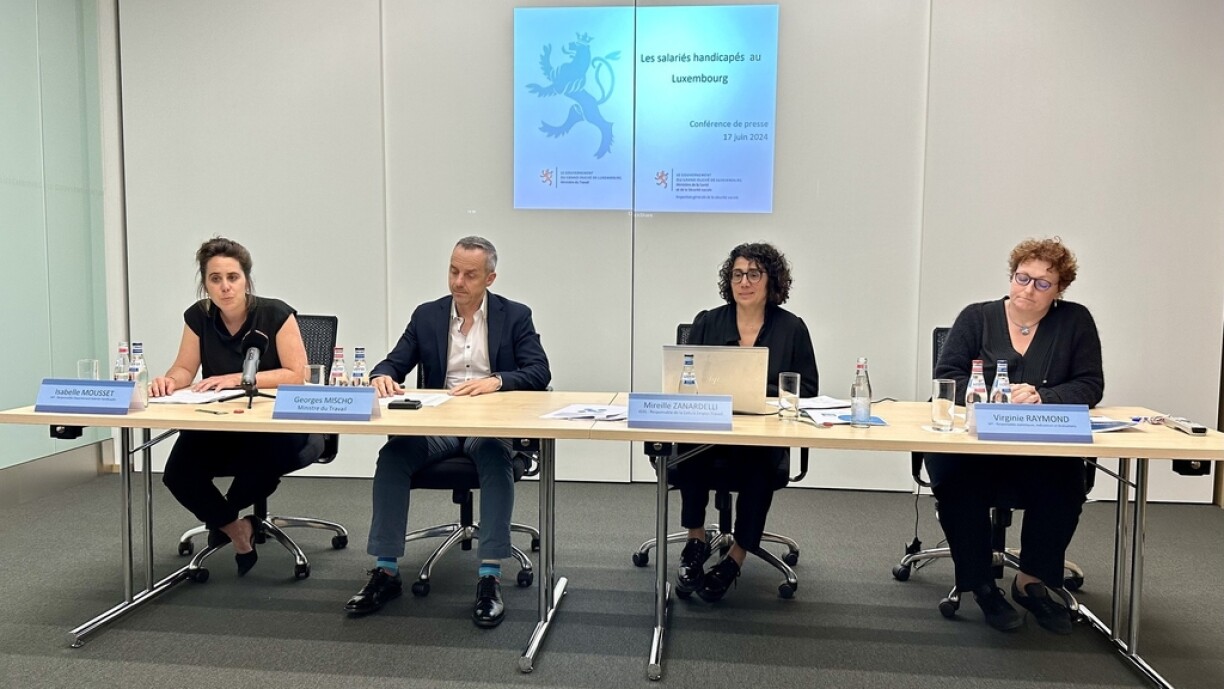
The Labour Ministry and the Social Security Inspectorate (IGSS) are looking to get a better overview of how challenging it is for people with a disability to integrate into the professional world. The joint study should further help establish a list of potential measures. According to the National Institute of Statistics and Economic Studies (STATEC), 94,000 people indicated having a disability in the most recent population census.
At a press conference on Monday, Labour Minister Georges Mischo commented on the situation, noting that people’s needs are varied and require a “transversal response from policy-makers”. The politician went on to underline the importance of giving those affected a chance to be active members of society.
The first step now is to establish a clear overview of the numbers, officials explained at the press event. In order for people to be granted the disability status, a commission has to determine an incapacity to work of at least 30%. At present, around 6,000 people in the Grand Duchy have this status, which is far below the 94,000 with self-reported disabilities. When including cross-border commuters, the number is above 7,200. Two thirds of those affected are male while more than half are older than 45 years.
IGSS spokesperson Mireille Zanardelli provided further insights, saying that around a quarter of those affected hold employment in a “protected workshop”, with the government playing an important role. 30% of people with a disability are registered with the National Employment Agency (ADEM) while every tenth person is not working and also not looking for employment.
A third of people holding the disability status have a chronic disease, close to a quarter of them suffer from a psychological condition, and about 18% have a physical disability. 95% of those affected hold a permanent employment contract (CDI), with 70% working full time.
Officials ended the briefing by underlining the importance of also determining the quality and fairness of employment in the joint study.